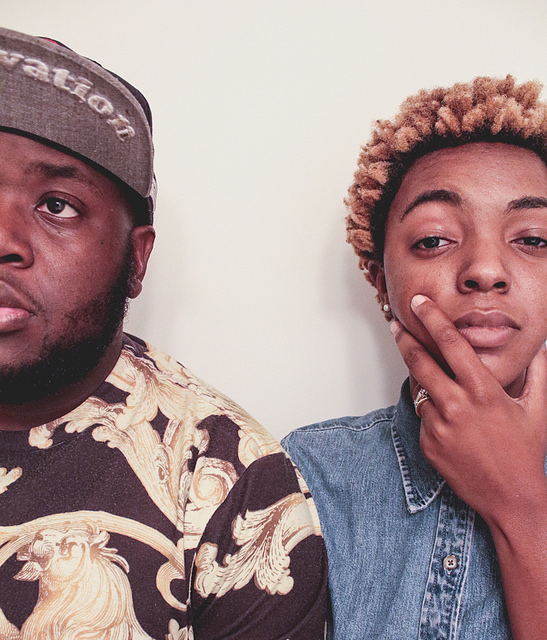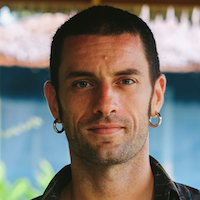I was in a particularly heated meeting with other pupils of a spiritual school.
The leadership was being questioned, and the whole process was stirring up powerful emotions in everyone involved. Suddenly, after I had expressed some concerns, a fellow student, almost in tears, cried: “Don’t you realize that you are creating doubt, and that doubt might make many people abandon this spiritual path?”
I had to admit that she was spot on. I was doubting. But I didn’t feel bad about it.
Doubting doesn’t have a great reputation nowadays. In almost all walks of life, we are encouraged to be sure of ourselves, coherent, and to do what’s necessary to overcome all doubts. At work, no one likes people who doubt. In spirituality, people who doubt their gurus or their paths are often perceived as weak, limited or, in some cases, even dangerous.
But is doubt always negative? If I look back at my own experience, I realize that throughout my life, I have doubted pretty much everything. Doubting has taken me where I am now.
After all, doubting is the seed of wondering and inquiry. Doubting is considered a precious resource both in philosophy and in experimental science. If Copernicus, the 16th century astronomer, hadn’t doubted a belief that had been in place for centuries, he wouldn’t have shown that the Earth orbits around the Sun, rather than the other way around.
Just as obviously, not all doubting is beneficial. In an emergency, resoluteness can literally mark the line between life and death. If we need to act in a fraction of a second, doubting is not an option. Doubting consumes energy and time, and makes us pensive and slow. Under certain conditions, that’s more than we can afford.
So what is it with doubting—is it a good thing or not? Perhaps, not all doubts are equal. In my experience, they fall into three main categories.
The paralyzing doubt.
This kind of doubt occurs when we can’t make our mind about what is the right course of action. We can’t move forward, nor can we go backward—so we stand in the middle, paralyzed. Like a horrified animal caught in the middle of the road, we can see the fast car approaching but we cannot escape in either direction.
Paralyzing doubt is almost hypnotic. It brings us to a standstill that has a sort of comfort to it, and there is a perverse beauty to this balance. We don’t make any choices, fearful that whatever we do might be wrong, forgetting that not doing anything is also a choice. This kind of doubt leads to inertia—but not to a peaceful, restoring inaction. In fact, paralyzing doubt consumes energy; while we might appear to be still, an internal battle is going on inside us.
When seized by paralyzing doubt, it is better to just choose one of the alternatives rather than let the time pass in idleness. Says the Bhagavad Gita, the seminal Indian treatise on moral and ethics:
“Perform your prescribed duty, for action is better than inaction. A man cannot even maintain his physical body without action.”
The dynamic doubt.
This kind of doubt happens when we challenge the external conditions because they are not in alignment with our inner values. More often than not, thanks to dynamic doubt we eventually move forward.
For example, we have been working in a company, accumulating money and honors. After a few years, we start doubting that this is really the right thing to do. A new inner awareness has emerged, which is not anymore in alignment with our present life, and demands a change. The movement forward is initiated by doubt.
Dynamic doubt leads to action. It is the unbalancing, wobbling moment that allows us to put one foot forward and walk. Thanks to it we evolve, by questioning our current status and evolving into a new chapter of our existence.
The philosophical doubt.
This is a particularly subtle form of doubt that can lead to a different perception of what surrounds us. It is founded on the intuition that whatever we perceive as “real” is never absolutely authentic, and it can always be doubted.
This is also known as “skepticism”—a word with generally negative tinges. What few people know is that the word “skeptical” originally means “someone that reflects, inquires, looks.” In that sense, philosophical doubt is one of the hallmarks of an inquisitive mind.
According to Spanish existential philosopher Miguel de Unamuno,
“The skeptic does not mean him who doubts, but him who investigates or researches, as opposed to him who asserts and thinks that he has found.”
Philosophical doubt may be the doorway to a deeper understanding of reality. Nevertheless, if taken to the extreme, it can also lead to the poisonous idea that human life is completely devoid of meaning and purpose. Skepticism is a powerful tool, and it is not for the faint of heart.
Summing up:
What can we make out of all this? First of all, that not all doubt is necessarily a bad thing. Sure, being constantly riddled with paralysing doubt isn’t great. But a bit of dynamic doubt can be a significant propeller for evolution and growth.
As for philosophical doubt, it can be the practice of a healthy, deep and inquisitive mind, as long as it isn’t pushed all the way into nihilism and meaninglessness.
Perhaps the most important conclusion is that we shouldn’t be afraid of doubt, but rather allow it to arise when necessary. Communities where people aren’t encouraged or even allowed to doubt lose their capacity of renovation, and become static, entrenched in dogma. When it doesn’t paralyze us, doubt is the sign of a fit mind, one that isn’t afraid of challenging the status quo.
Does this all make sense to you? If it does not, don’t worry—I’m glad you’re doubting it.
~
Relephant:
Torn between 2 choices? Here’s how to get Unstuck.
~
Author: Raffaello Manacorda
Editor: Catherine Monkman
Photo: avf/Flickr











Read 0 comments and reply